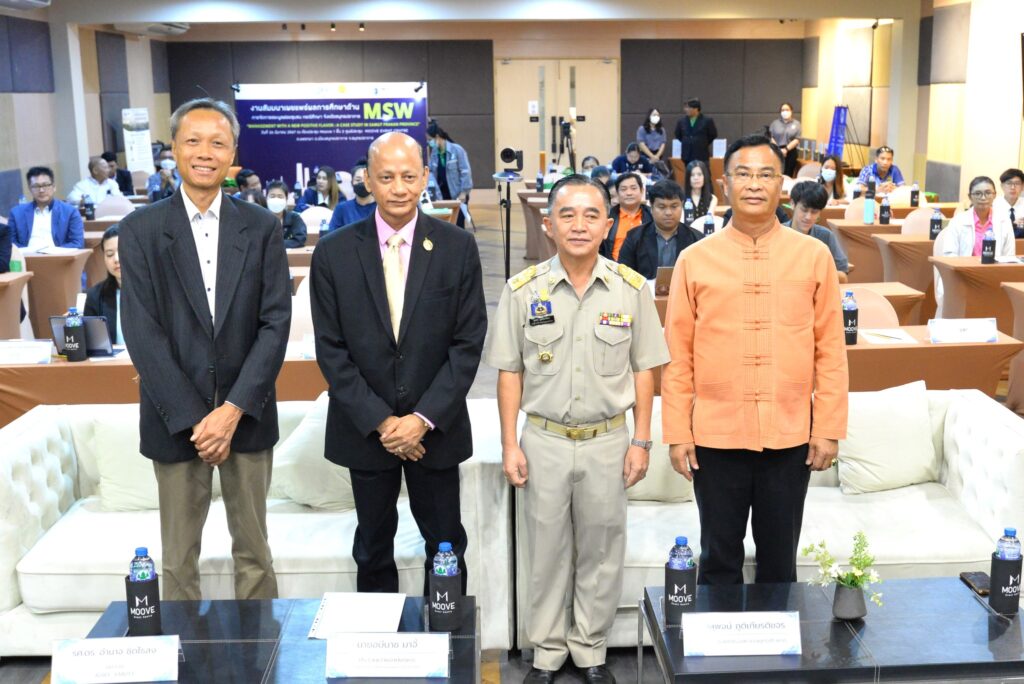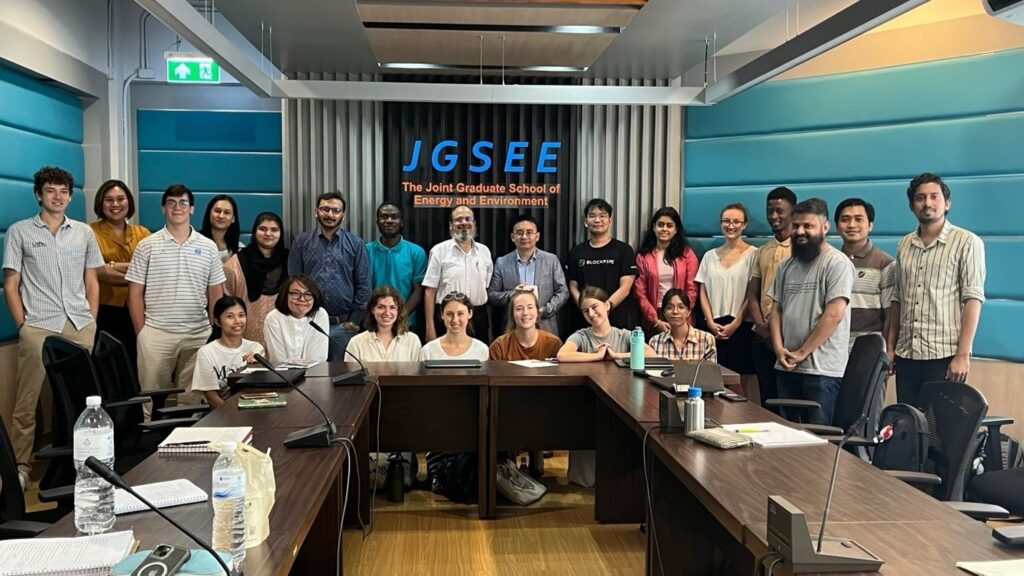Agriculture is a significant contributor to greenhouse gas (GHG) emissions in Thailand. Decarbonizing this sector is vital to achieving the country’s net-zero emissions goals and mitigating the impacts of climate change. Addressing this challenge, JGSEE organized a webinar titled “Greenhouse Gas Emissions Reduction in Agriculture” on 17 September 2024, offering a platform for experts to exchange knowledge and discuss strategies for reducing agricultural GHG emissions.
The event began with welcome remarks from Prof. Dr. Navadol Laosiripojana, Director of JGSEE and Manager of Hub Net Zero, who emphasized the critical importance of managing agricultural emissions to meet climate targets.




Distinguished speakers from JGSEE shared valuable insights throughout the session:
- Assoc. Prof. Dr. Sirintornthep Towprayoon introduced the concept of GHG emission baselines, highlighting their importance in identifying emission hotspots and implementing targeted mitigation measures. She also presented findings from her baseline study on crop production in Chiang Rai.
- Dr. Nittaya Cha-un discussed the application of biochar as a mitigation strategy, showcasing its effectiveness in reducing methane emissions in rice fields.
- Assoc. Prof. Dr. Amnat Chidthaisong presented fertilizer management, emphasizing the optimization of fertilizer use as a means to lower emissions while reducing production costs.
The session concluded with an introduction to carbon credit programs, focusing on the development of agricultural carbon credit projects to incentivize sustainable practices.
With nearly 300 participants from government agencies, research and academic institutions and the private sector, the webinar underscored the importance of integrating innovative solutions into agriculture to address climate change while promoting sustainability.







